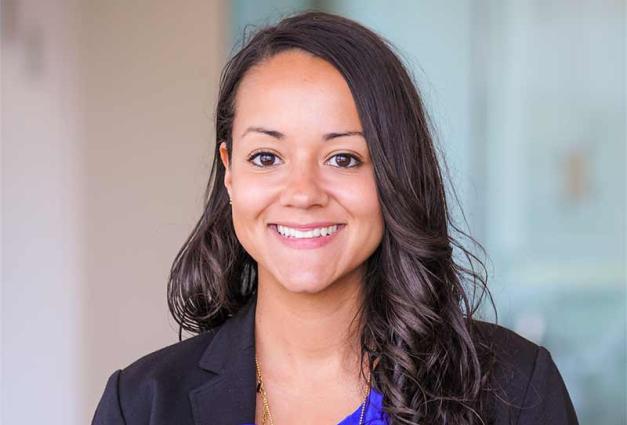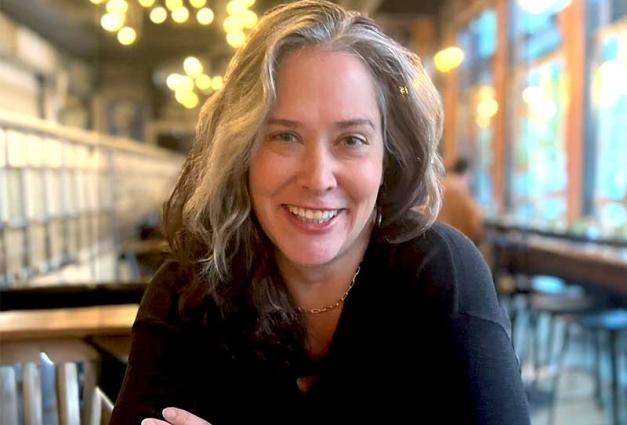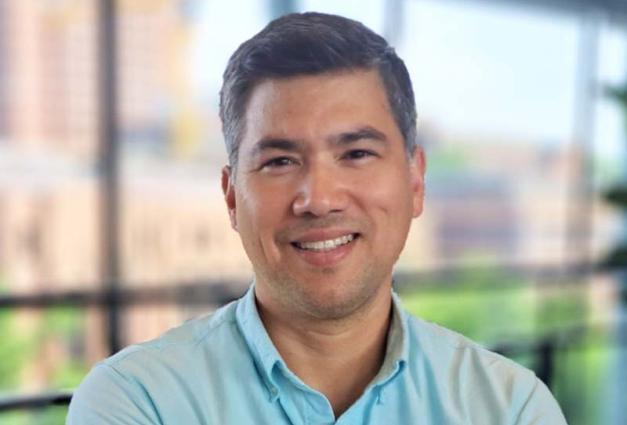William Meese is a doctoral student in psychological sciences working with Dr. Jennifer Howell at the University of California, Merced. His research examines how self-processes influence well-being, particularly related to how people think about and respond to self-evaluative information and events (e.g., receiving feedback about one's health or work performance). Will completed his undergraduate degree at Reed College, where he worked with Dr. Kathryn Oleson. He is currently affiliated with the Health Sciences Research Institute at UC Merced, is part of the research team at Project Implicit Health, and, together with Jordan Rubin-McGregor, he co-chairs SPSP's Disability Advocacy Research Network's research group.
Briefly summarize your current research and any future research interests you plan to pursue.
I am interested in how people navigate threatening situations and aim to understand how different approaches to managing these situations can change how people think and feel about themselves. Because of this interest, a substantial portion of my work focuses on the cognitive, affective, and motivational functions of the self, how the self-system changes in anticipation of and in response to self-evaluative events, and how these changes impact behavior (e.g., social, educational, occupational functioning, health behavior, health outcomes). To do so, I investigate the different strategies people use to satisfy self-motives (e.g., self-protection, self-assessment, self-improvement), with an eye toward specifying exactly how these strategies might be coordinated within a system of psychological self-protection. I recently tested some of these ideas, demonstrating that the decision to avoid health information as a proactive strategy of self-protection is interchangeable with other reactive strategies of self-protection that people use after exposure to a self-threat (Meese et al., in review). I am continuing to expand this work in a theoretical framework, which builds on existing research, wherein I propose two specific but previously confounded mechanisms that explain how different self-protection strategies are interchangeable by incorporating recent advances from research on affect and motivation (Meese & Howell, in prep).
I also do a lot of work on social identity processes related to health and well-being. In a recently published study, I show that people are biased in favor of others with the same brand COVID-19 vaccine, giving about $2.00 more on average to their vaccine-brand ingroup (e.g., Moderna vs. Pfizer, from a $10.00 hypothetical budget) compared to their vaccine brand outgroup (Meese & Howell, 2023). In another set of studies I am working on, I am examining how people think about the Queer identity and how the structure of the Queer identity shifts in different circumstances. Examining the Queer identity is important to me personally because I have increasingly noticed people who fit into the Queer identity feeling that they do not belong or that they are uncertain about their belongingness. I believe that this is important because the Queer identity should serve as a resource and a source of strength, not a source of strife for those living under the Queer umbrella. But this is theoretically interesting, too, because the Queer identity was conceived as a way to deconstruct social categorization processes surrounding gender and sexuality, but we often find ourselves attempting to reconstruct those boundaries to decide who is and who is not Queer. I think this work will advance our understanding of social identity processes, particularly how different types of social identity boundaries are influenced by potentially threatening interpersonal, intrapersonal, and intergroup situations.
What led you to choose a career in personality and social psychology and your interest in research on the self?
My interest is driven by a desire to understand how the way that we think about ourselves is influenced by how we experience the world around us. During my time at Reed, I attempted to reduce uncertainty about what I wanted to do with my life by going to the library to read journals from different disciplines that I thought could answer questions about the problems I saw in the world. I kept returning to social psychological theory and research, and its application to important problems like academic and health disparities, social conflict, and occupational difficulties. At Reed, this interest was cemented further when I took classes on interpersonal perception and the social self with Dr. Kathryn Oleson. Our conversations in her class and in her lab fascinated me and established the groundwork for what is now becoming a lifelong passion for social and personality psychology.
After college, I spent a handful of years working as a mental health practitioner in the psychiatry department at UCLA, years that reinforced unexpectedly my interest in social psychology. I noticed that many of the people I worked with struggled with a porous sense of self, quickly absorbing traits from others. They oscillated between states of osmotic self-construction and impenetrable defensiveness. To help my patients, I developed a metaphor from cell biology that I used to illustrate that, like the phospholipid bilayer, we can select what we like from different role models and selectively adopt traits that are beneficial for our own purpose, like establishing a well fortified and pragmatically constructed sense of self. This work returned my empirical interest to issues surrounding the self and social identity threat. For example, I often observed information communicated about patients—like a stigmatized personality trait or disorder (e.g., borderline personality disorder, Chron's disease)—that appeared to influence how patients were treated and how they felt about themselves. On days when this stigmatized information was not communicated, these particular patients fared much better than when care providers received "warnings" from their colleagues. I further observed these threats to patient health and well-being further compounded for those from minoritized backgrounds. These observations motivated me to use experimental social psychology to explore the effect of bias and prejudice on how people think about themselves and their health as an avenue to explain and ultimately help reduce health disparities.
How has being a member of SPSP helped to advance your career?
I am so grateful for the resources provided by SPSP to graduate students like me. It has helped advance my career as a social psychologist in more ways than our audience may have time to read about, but, fundamentally, SPSP has provided me with a vibrant intellectual community of colleagues with whom I am thrilled to be developing lifelong, collaborative professional relationships. Most recently, I had the privilege of attending the Summer Institute in Social and Personality Psychology with a truly wonderful group of fellow graduate students who are doing groundbreaking research and led by a stellar set of faculty instructors. In my work as a disability advocate with SPSP's Disability Advocacy Resource Network, I have developed strong relationships with colleagues through the work we are doing by working together with Jordan Rubin McGregor and DARN's founders Dr. Kathleen Bogart, Dr. Lisa Aspinwall and Afrooz Ghadimi, among many others. This is an exciting time for me to enter our field, a time that is filled with engaging scholars who are committed to conducting rigorous, impactful research and improving science through diversification and open science methodology.
Do you have a favorite course to teach and why?
I think perhaps the most rewarding class to teach, so far, was our intro to statistics course—it was wonderful to watch students engage with the material and master an understanding of concepts. One of my tricks has been to take out all the examples to do with IQ and replace them with examples that do not prime for math anxiety. I would love to teach a course on theory construction at both the undergraduate and graduate levels that incorporate different approaches to knowledge construction and builds on existing coursework in methods statistics. Even though courses like these are not typically part of the curriculum, I think they are a great way to help students develop skills they can use in their life and career, particularly by incorporating concrete skill development opportunities that undergraduate students can put on their resumes and increase career opportunities. Perhaps more non-traditional, I want to incorporate a truly interdisciplinary approach to these courses. For example, I would love to work with playwrights, philosophers, attorneys, and other professionals to help students learn how to recreate "social-psychological" situations in experimental research designs—like, we have been replicating Shakespeare for hundreds of years and I think those methods can be used to improve replication of social psychological experiments. I would also love to work together with other social scientists to create certificate programs nested in undergraduate curricula to increase the value of degrees in psychology for our students (and course enrollment!).




